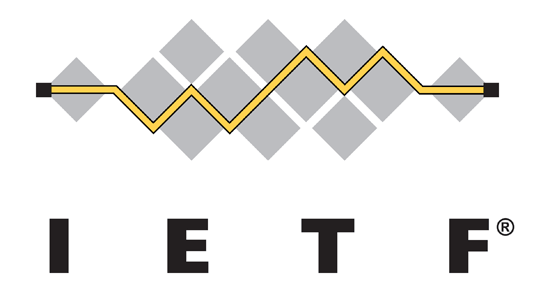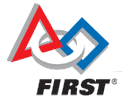![]() On January 29 2008, as part of their Tech Talks series, Google had a conference on the topic of IPv6. Video has now been posted on YouTube. Continue reading
On January 29 2008, as part of their Tech Talks series, Google had a conference on the topic of IPv6. Video has now been posted on YouTube. Continue reading
education
The TAMMI – a new non-profit tech/culture incubator in The Bronx
 The purpose of the Technology, Art, Movie and Micro-Business Incubator, Inc (the “TAMMIâ€) is to promote arts, culture, science, and technology in furtherance of social and economic development in the South Bronx and other economically disadvantaged areas of New York City. The TAMMI seeks to nurture creativity and innovation, stimulate creative enterprises, and celebrate the diverse heritage of New York City. The TAMMI intends to accomplish its purpose through education, training, and mentoring, providing resources, technical assistance, and strategic advice, and promoting events and programs to develop local opportunities and increase community awareness about issues relating to entrepreneurial pathways and opportunities in the creative technology industry. Continue reading
The purpose of the Technology, Art, Movie and Micro-Business Incubator, Inc (the “TAMMIâ€) is to promote arts, culture, science, and technology in furtherance of social and economic development in the South Bronx and other economically disadvantaged areas of New York City. The TAMMI seeks to nurture creativity and innovation, stimulate creative enterprises, and celebrate the diverse heritage of New York City. The TAMMI intends to accomplish its purpose through education, training, and mentoring, providing resources, technical assistance, and strategic advice, and promoting events and programs to develop local opportunities and increase community awareness about issues relating to entrepreneurial pathways and opportunities in the creative technology industry. Continue reading
IETF scholarships offered to ISOC Chapters
 The IETF (Internet Engineering Task Force) will hold IETF 71 in Philadelphia on March 9 – 14 2008.
The IETF (Internet Engineering Task Force) will hold IETF 71 in Philadelphia on March 9 – 14 2008.
The IETF has offered to waive the registration fee for a limited number of ISOC chapter members who otherwise could not attend. One such scholarship is available per chapter.
ISOC-NY is looking for a suitable candidate who could attend on our behalf. Please note that the meeting lasts 6 days and the attendee would have to cover his/her own costs of transport and accommodation. If desired, IETF will provide a mentor who can introduce him/her to the meeting process.
The schedule for IETF 71 can be found at www.ietf.org. Continue reading
NYC FIRST Robotics Competition needs volunteers
 The New York City FIRST Robotics Competition needs a few volunteers to select winning websites from among those created by FIRST high school teams. Its a great way to meet young rising stars.
The New York City FIRST Robotics Competition needs a few volunteers to select winning websites from among those created by FIRST high school teams. Its a great way to meet young rising stars.
Would you like to help out? If so, please get in touch. Continue reading
The New York Law School DO TANK
![]() DO TANK is shorthand for the Democracy Design Workshop of the Institute for Information Law & Policy at the New York Law School.
DO TANK is shorthand for the Democracy Design Workshop of the Institute for Information Law & Policy at the New York Law School.
DO TANK contains a dazzling range of worthy projects from online access law to rethinking online conferencing
Continue reading
Lynn St Amour to participate in DNS Forum
 President and CEO of the Internet Society, Lynn St Amour, will join a panel of distinguished speakers in the Royal Society of London, UK, to discuss the naming system which is critical to modern Internet operations.
President and CEO of the Internet Society, Lynn St Amour, will join a panel of distinguished speakers in the Royal Society of London, UK, to discuss the naming system which is critical to modern Internet operations.
The discussion “What’s in a name? The History and Future of the Domain Name System” will explore the history and future of the Internet Domain Name System (DNS). Continue reading
“Growing Up Online” documentary on PBS tonight
“Growing Up Online,” a documentary to be broadcast on the “Frontline” program on most PBS stations on Tuesday night, uses real-life stories to ask an increasingly important question: What does it mean to be part of the first generation coming of age steeped in a virtual world seemingly outside parental control? Continue reading
Former CTO of the OLTP project describes challenges to providing connectivity in developing nations
In an interview with ACM Queue, Mary Lou Jepsen, former CTO of the One Laptop Per Child (OLTP) project describes some of the technical challenges to providing Internet connectivity in developing nations:
The whole machine is a different class of computing environment, and it’s aimed at a different set of users. You can’t get there by taking a classic office productivity laptop and cost-reducing it.
It’s pretty hot in much of the developing world, so we’ve designed a laptop that can take extreme heat …. half the kids in the world don’t have electricity at home. Half the kids. Eighty percent of the schools that we’re going into don’t have electricity. So we had to design a laptop that was also the infrastructure. It has mesh networking …. solar repeaters and active antennas …. If one laptop in a village is connected to the Internet, they all are.
There’s truly so little power in the developing world. If a school is wired, it tends to be on a generator, and there’s one 60-watt light bulb per classroom. Generators make really weird power. Usually what comes out of the wall in most countries is 50 or 60 hertz, or somewhere in between. With generators, the frequency of the AC power can go down to 35 hertz. We therefore had to do really interesting power conditioning on the AC adapter. The laptop itself can take between negative 32 volts to 40 volts, and work well with anything from 11 to 18 volts. You can plug a car battery into it. You can plug a solar panel into it. A hand crank can produce enough energy to power the battery for some time, as can a bicycle or a windmill. India has this cow-dung system that creates methane that drives a generator. Even that will work.
Via Slashdot
Google Policy Fellowship Applications Due January 11
 Google has launched a new student Fellowship Program that will provide opportunity for students interested in Internet and tech policy to advance their studies through summer work at public interest organizations. Continue reading
Google has launched a new student Fellowship Program that will provide opportunity for students interested in Internet and tech policy to advance their studies through summer work at public interest organizations. Continue reading
